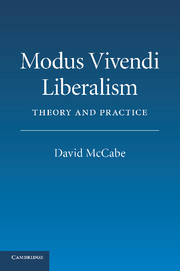3 - Liberal autonomy: the universalist case
Published online by Cambridge University Press: 06 July 2010
Summary
THE LIBERAL IDEAL OF AUTONOMY
In this chapter I assess the case for liberalism grounded in the universal value of the ideal of personal autonomy. By a universal value I mean one whose worth is not a function of circumstantial facts about any particular society but is instead of such weight that a person either cannot lead a good life without it or is overwhelmingly less likely to do so. The argument considered in this chapter claims both that personal autonomy is such a universal value and that only robust liberal regimes adequately protect it.
The notion of autonomy relevant here concerns neither the will's capacity to be causa sui, in the sense relevant to metaphysical debates over free will and determinism, nor the (related) idea of moral autonomy central to Kant's ethics. Both issues would be addressed in any comprehensive account of autonomy, but their complexities raise deep questions that can be ignored in the debate over autonomy-based liberalism. In that debate the ideal of personal autonomy contrasts neither with causally determined behavior nor with acts that fail to conform to a principle of universalizable self-legislation, but with actions and choices that run afoul of the ideal of individuals' determining their own course in life, with persons whose goals and choices do not reflect judgments they have made for themselves and so fail in important ways to author their own lives.
- Type
- Chapter
- Information
- Modus Vivendi LiberalismTheory and Practice, pp. 29 - 53Publisher: Cambridge University PressPrint publication year: 2010

